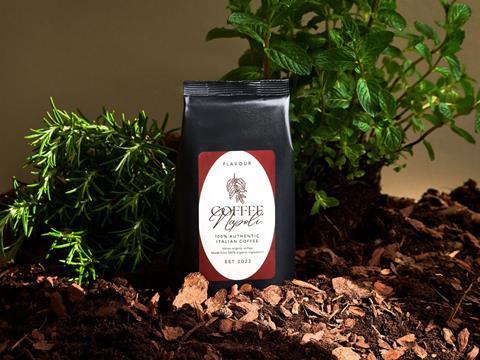
Fedrigoni Self-Adhesives has announced its new range of compostable self-adhesive materials, developed with the aim of providing high-performance labels for fully compostable packaging.
The company says that as both the packaging and self-adhesive materials have the same biodegradation properties, they can be disposed of together at the end of their life cycle through the industrial composting process. Apparently, creating self-adhesive materials that meet the compostability criteria stems from the company’s aim to develop solutions with less environmental impact, even where it is not possible to recycle or reuse the packaging.
It states that composting can be a useful option for materials in contact with food, when they are excessively soiled or when it is difficult to separate quality waste. To be defined as compostable, a product must be 90% biodegradable within six months, disintegrate within three months and pass every eco-toxicity test.
Fedrigoni Self-Adhesives says this is a further step towards achieving its sustainability targets: by 2030, 100% of solutions must be designed for an optimal end-of-life, meaning all new self-adhesive materials are designed and manufactured by carefully considering the end of life and the possibility they will be recycled, reused or composted after their use.
“The search for sustainable solutions involving the entire packaging chain is a key point, as these are required both by legislation and by the market. Our new range of compostable packaging films fits into the context of these demands,” says Clément Lesniak, sustainability solutions manager at Fedrigoni Self-Adhesives.
“After use, the materials used can be recovered through a biological process, and can then be transformed together with the packaging into substances that are useful for the soil,” he adds.
We spoke to Fedrigoni’s self-adhesives commercial director, Fernando Giron, last year, about the key drivers of innovation in self-adhesive materials, including applications in the pharmaceutical and wine sectors, and looked ahead to potential future developments in our ‘In Conversation With…’ feature.
In similar news, Mondi claims to have reduced 95% of its waste at its Dutch and German release liner production sites in two years through its partnerships with Veyzle, WEPA, and Soprema; the treated waste is now used as secondary raw material for hygiene and insulation applications. It is anticipated that the partnership will conserve valuable resources and help Soprema increase the proportion of recycled materials in its products while avoiding waste.
If you liked this story, you might also enjoy:
Report: The ultimate guide to global plastic sustainability regulation
The Brief: Oxo-(bio)degradables: the who, what, and why of breaking down fossil-based plastics
Sustainable Packaging Summit: How Kraft-Heinz uses collaboration to drive innovation
The Brief: Using ocean-bound plastic in packaging – how, why and should we?














No comments yet